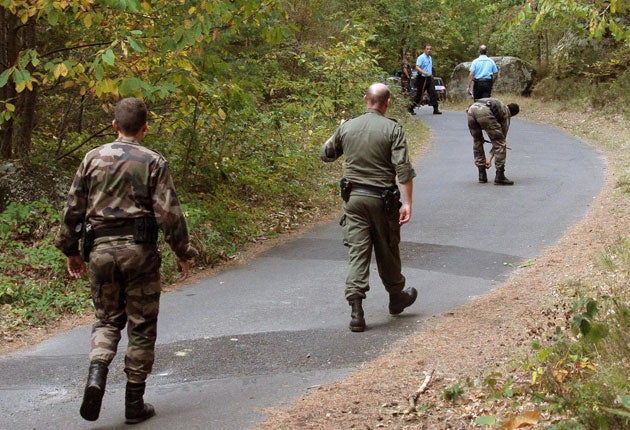Murder sparks demands for 'chemical castration'
France calls for hormone treatment for sexual criminals

France is considering the compulsory "chemical castration" of sexual criminals after a woman jogger was murdered in a forest south of Paris by a convicted rapist.
The "voluntary" use of drugs to destroy or limit the libido is already available to male sex offenders in France. The Prime Minister, François Fillon, has now announced that he will consider ways of making the law "more obligatory".
An anguished debate about chemical castration has been raging since the murder of Marie-Christine Hodeau, 42, who was kidnapped while jogging near the forest of Fontainebleau, 30 miles south of Paris, last week. After she was bundled into a car boot, Ms Hodeau called police on her mobile phone and gave them the make and registration of her attacker's vehicle. Her presence of mind failed to save her life but led to her killer's rapid arrest and confession. He took police to woodland where they found Ms Hodeau's body hidden beneath branches.
Manuel da Cruz, 47, had already been sentenced to 11 years in prison for the kidnap and rape of a 13-year- old girl in 2002. He was released in March 2007 and went back to live in the same village as his young victim.
The case has generated an outcry against the French judicial system and pressure for the hardening of a law introduced in 2005 which allows sexual offenders to volunteer for so-called "chemical castration" – the use of anti-hormone treatment to reduce or destroy the sexual appetite. Politicians within President Nicolas Sarkozy's centre-right party said that it was time for France to move towards the compulsory form of chemical castration, which already exists in Germany, Belgium and Denmark.
They were supported by some politicians on the left, including the Socialist former presidential candidate, Ségolène Royal. "Everything which goes in the direction of preventing sexual predators from attacking again must be tried," she said.
Other political figures on both right and left appealed for calm and warned that legislation "driven by headlines" was almost always ill-considered. Benoît Hamon, the spokesman for the Socialists, the main opposition party, said that enforced chemical castration was a "deplorable" and "indecent" idea and probably contrary to international law.
On Thursday, the justice minister, Michèle Alliot-Marie, said that she would propose a draft law by the end of this month to toughen the existing legislation. She said, however, that chemical castration would remain "voluntary".
Mr Fillon has now gone a step further. "We are not ruling out any possibility on any subject," he said. New legislation would be brought forward make chemical castration "more obligatory".
Proponents of chemical castration say that, unlike physical castration, it is reversible and should not be considered a "cruel or unusual" punishment. Hormone-blocking chemicals are used to diminish, or switch off, the libido but the effects last only as long as the treatment.
Join our commenting forum
Join thought-provoking conversations, follow other Independent readers and see their replies
Comments
Bookmark popover
Removed from bookmarks